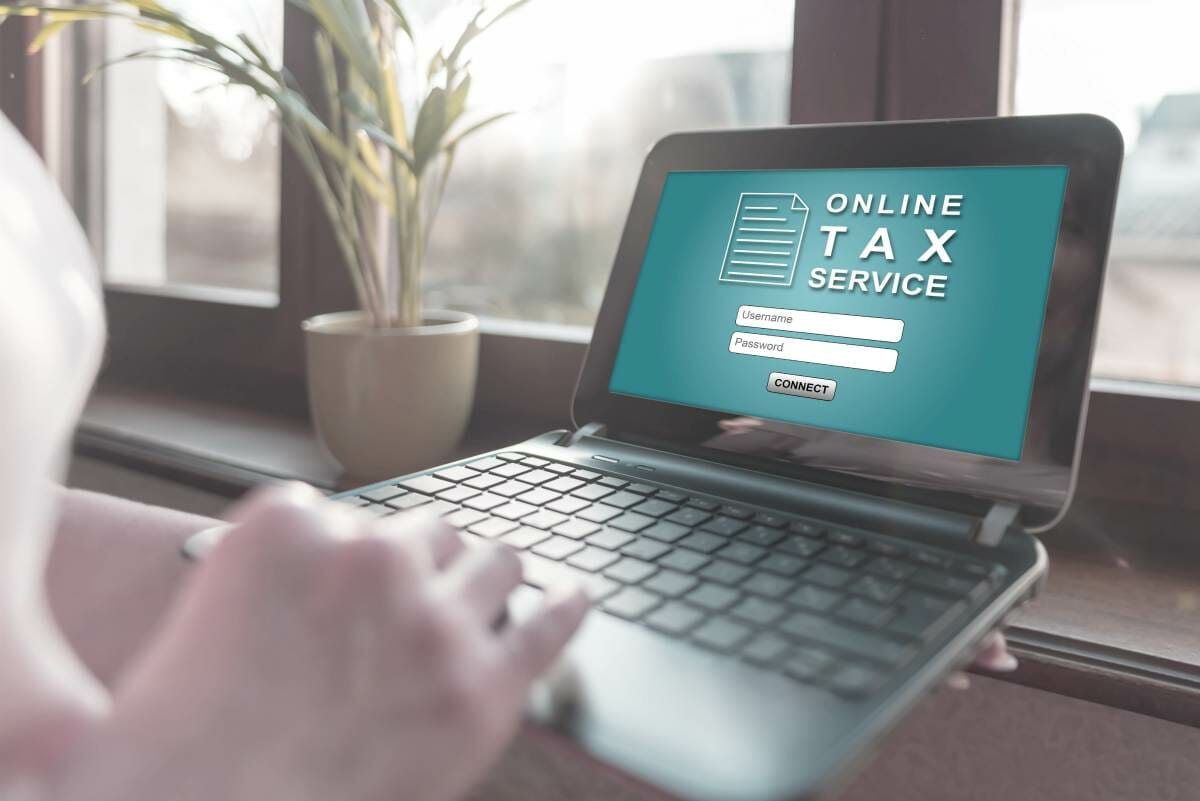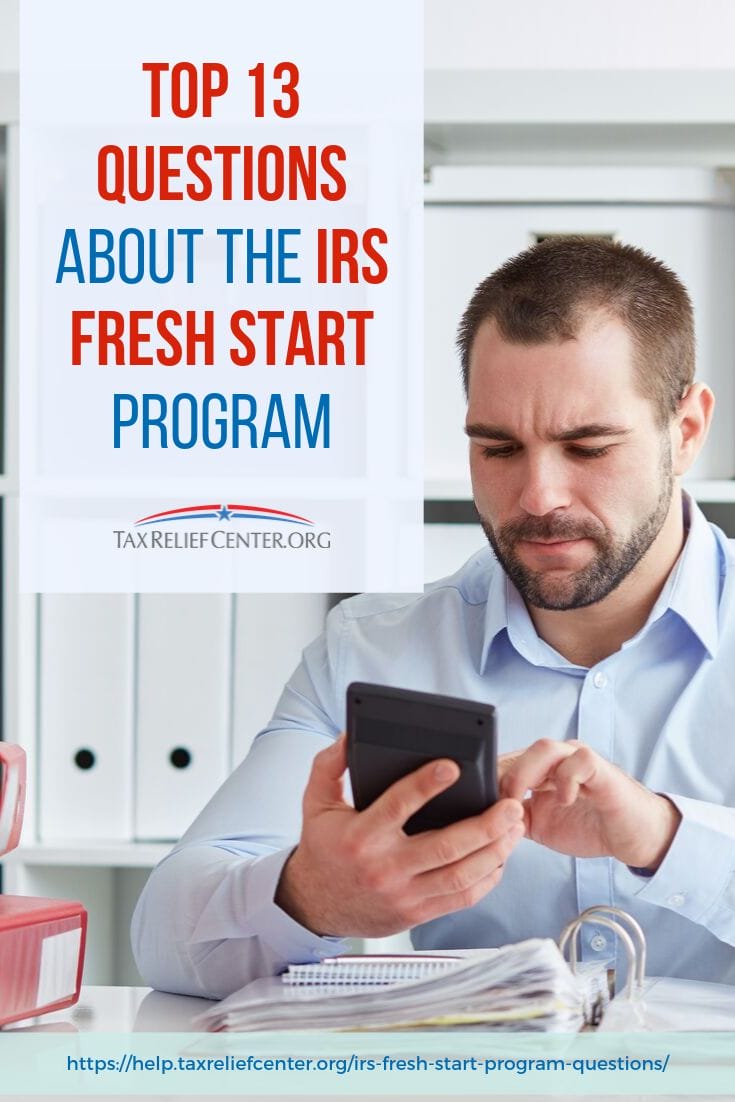The IRS Fresh Start Program can provide you several means of lightening your tax burdens and prevent the IRS from placing tax liens on your home, your accounts, and your car. Here’s everything you need to know about it.
RELATED: 9 Qualifications For The IRS Fresh Start Program
In this article:
- What Is the IRS Fresh Start Program?
- How Will the IRS Fresh Start Program Work in Your Favor?
- Who Can Avail of the Fresh Start Program?
- How Does One Qualify for the IRS Fresh Start Program?
- Do I Need a Tax Specialist to Help Me Get into the Program?
- How Do I Find Out How Much Back Taxes I Owe?
- What Will Happen If I Don’t Have the Ability to Pay My Taxes Right Now?
- What Payment Options Do I Have with the IRS?
- The Statute of Limitations on Tax Debt – What Is It?
- Can the IRS Forgive My Tax Debt?
- Can the IRS Take All the Funds in My Bank Account?
- What About My 401(k)?
- If I Declare Bankruptcy, Will the IRS Still Pursue My Assets?
All You Need to Know About the IRS Fresh Start Program
1. What Is the IRS Fresh Start Program?
The IRS designed the Fresh Start Program to provide a measure of relief to taxpayers having a hard time paying their back taxes. Under the program, struggling taxpayers gain several options on how to handle paying their tax debts to avoid liens and garnishments.
2. How Will the IRS Fresh Start Program Work in Your Favor?
You can think of the IRS Fresh Start Program as a set of instruments you can tap depending on your financial situation and ability to pay.
- Tax Lien Relief: Under the Fresh Start Program, the IRS increased the ceiling of the amount of tax debt one has to owe before the service places a lien on their property from $5,000 to $10,000. Before the program, a tax debt that amounted to $5,000 triggered the IRS to place tax liens on struggling taxpayers. The Fresh Start Program also allowed taxpayers to easily remove tax liens when they show behaviors of responsibly paying their back taxes.
- Relief from Tax Penalties: The IRS adds penalties and interest on top of unpaid taxes. These extras can balloon to up to 40% of the total tax debt owed, if a taxpayer does not address them promptly. The Fresh Start Initiative will provide the taxpayer ways to shave off certain tax penalties for late tax payments, failure to file a return, and failure to deposit taxes.
- Streamlined Tax Payment Installments: Taxpayers with debts of up to $50,000 can set up an installment plan to pay their tax debts off in up to 72 months or 6 years. A taxpayer who exceeds the $50K ceiling can still avail of the installment plan, but they will have to give the IRS detailed information on their financial situation.
- IRS Offer in Compromise: The taxpayers can settle their tax debts with the IRS for less than the actual amount they owe through an agreement called an Offer in Compromise or OIC. Before the IRS Fresh Start Program, taxpayers needed 4 to 5 years of income before the IRS could assess the minimum amount they must pay. Now, it will take just 1 to 2 years of income for taxpayers to receive this assessment.
3. Who Can Avail of the Fresh Start Program?

Struggling taxpayers who owe the IRS back taxes, penalties, and interest.
4. How Does One Qualify for the IRS Fresh Start Program?
Since the IRS Fresh Start Initiative is a cocktail of solutions, not an all-in-one measure, taxpayers will have to apply for the type of tax debt relief best suited for their situation.
Here are the criteria which a taxpayer must meet to qualify for the Fresh Start Program:
- The taxpayer proves they don’t have the assets nor the money to pay the tax debt.
- The taxpayer files all the tax returns they’re required to file, even if they can’t pay them just yet.
- Self-employed workers and small business owners must pay all their estimated taxes due for the current year.
- Business owners with employees must make all federal tax deposits they’re required to give.
- The taxpayer must not be processing a bankruptcy declaration.
5. Do I Need a Tax Specialist to Help Me Get into the Program?
You can deal with the IRS on your own, but you will need a tax specialist to help you negotiate for the best agreement with the IRS to maximize the tax debt relief benefits you can avail.
A tax specialist will help you navigate the potential landmine of sensitive financial information, loads of paperwork, and inevitable stress of dealing with tax debt.
RELATED: The 3 Types Of IRS Offer In Compromise And Their Eligibility Requirements
6. How Do I Find Out How Much Back Taxes I Owe?

The IRS will send you a bill detailing how much you owe. If you want to take the initiative, you can call the IRS through the numbers on this page or you can view your tax balance online here.
You can also file the Form 4506-T at your local IRS branch if you’re an individual taxpayer who filed a tax form other than a Form 1040.
Individual taxpayers who filed a Form 1040, 1040A, or 1040EZ can request an Account Transcript online that covers a single tax year. Please take note that the information in these transcripts may not reflect the recent interest, penalties, or updates.
7. What Will Happen If I Don’t Have the Ability to Pay My Taxes Right Now?
Thanks to the IRS Fresh Start Program, you can avail of the many debt relief options for your particular situation. You can negotiate abatements on your tax penalties, tailor an installment plan with the IRS to pay your tax debt, and even seek an Offer in Compromise if you can’t pay the total tax amount.
Your best chances lie with the support of a tax specialist who will look at your specific life and financial situation and negotiate a plan with the IRS that works in your favor.
8. What Payment Options Do I Have with the IRS?
You can pay the IRS through the following means:
- Through the IRS website
- The IRS mobile app
- Cash at retail partners
- Direct payments using your bank account
- Pay via wire transfers
- Credit and debit card payments
- The Electronic Federal Tax Payment System (EFTPS) for business owners
9. The Statute of Limitations on Tax Debt – What Is It?

The law prevents the IRS from pursuing tax debt after a period of 10 years. This can come into play when a taxpayer seeks some tax debt relief since the IRS can negotiate for the collection period to extend beyond this time frame in return for an OIC or easier installment terms.
10. Can the IRS Forgive My Tax Debt?
The IRS provides tax debt forgiveness to taxpayers in extremely rare instances. They’re more likely to provide you an OIC, good installment terms, or declare that your debt cannot be collected.
When they declare that your tax debt is not collectible, the service will still hold you liable for penalties and interest from the uncollectible tax. However, you will not receive any tax refunds, you will probably encounter difficulties in getting credit down the line, and it will be harder to be eligible for some debt relief options.
11. Can the IRS Take All the Funds in My Bank Account?
Yes, the IRS can place a tax lien on your bank account and your bank will freeze your account for 21 days before handing the money to the service. The IRS can also place a lien on your house and car.
You need to get in touch with a tax specialist before this happens. They’ll negotiate with the IRS for you so the service will not seize your finances and assets to settle your tax debt.
12. What About My 401(k)?

The IRS can take your 401(k) and your IRA if you have unpaid tax. If you’re facing this situation, a tax specialist can help save your retirement account and negotiate a deal with the IRS for you.
13. If I Declare Bankruptcy, Will the IRS Still Pursue My Assets?
A declaration of bankruptcy does not guarantee that the IRS will release your assets and finances from a tax lien. Again, you will need the help of a tax specialist to navigate your tax situation and to find out how you can leverage bankruptcy to get a tax lien released or to acquire tax debt relief.
The debt relief options you’ll find in the IRS Fresh Start Program can serve as your lifelines, especially if you’re facing a tough situation due to back taxes, penalties, and interest. Talk to your tax specialist for tax relief services and avail of the forms of relief in this program for your peace of mind.
What do you think of the IRS Fresh Start Program? Do you find it helpful for your situation? Please give us your replies in the comments section below.
If you owe back taxes, visit taxreliefcenter.org for more information on tax relief options.
Up Next:
- 6 Tips to Avoid Wage Garnishment
- 9 Things To Consider When Choosing An IRS Payment Plan
- FAQs On Tax Debt Relief Act


